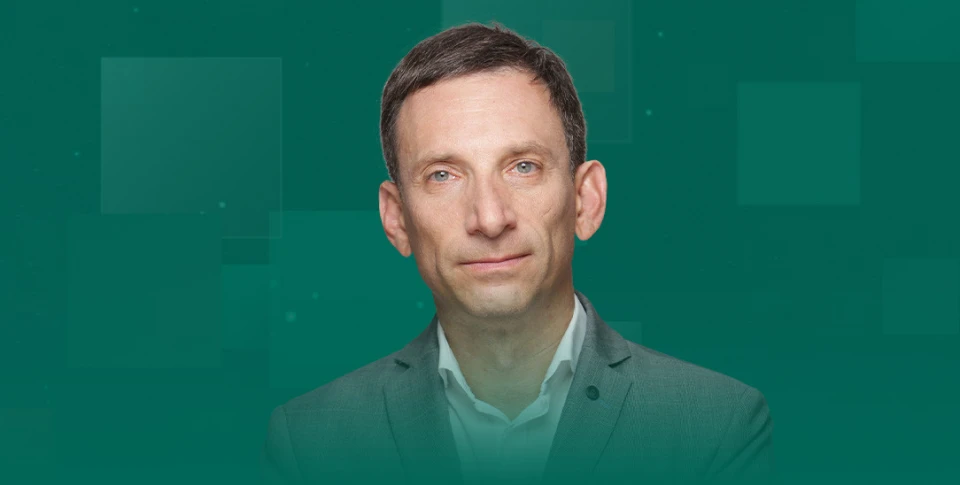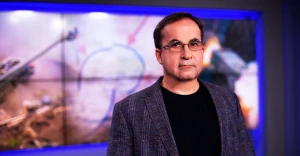
Zelenskyy's call with U.S. presidential election winner: dialogue with Trump is necessary
President of Ukraine Volodymyr Zelenskyy was one of the few foreign leaders who not only congratulated Donald Trump on his victory but also had a phone conversation with the incoming president. Zelenskyy later described the conversation as "very good"
The very fact of this phone conversation, regardless of its content - from ceremonial to discussing the new U.S. president's approach to the Russo-Ukrainian war - holds great significance. At the very least, it shows that Trump recognizes the importance of the Ukrainian issue for the United States, at least for the initial period of his presidency.
It is worth reminding that during the election campaign, Donald Trump promised to end the Russo-Ukrainian war within hours through negotiations with the Ukrainian and Russian presidents, forcing them into peace talks. The former U.S. president also emphasized that if he had remained in the White House, the war between Russia and Ukraine would never have happened.
But these were campaign promises and rally speeches. Now, by January next year, Trump will have to answer for these words, along with many other promises he made while trying to return to power and avoid further legal prosecution. As we understand, this is typical of any election campaign - most of the promises Donald Trump made to his voters are not realistic, even with the best intentions. Especially when those intentions are absent, and the sole desire is to seize power and influence.
And the situation with the Russian-Ukrainian war is also, of course, part of the kind of promises that you can hope for when you are a candidate for the presidency of the United States, but that you cannot fulfill when you are faced with an inexorable reality.
And it is in this reality that, in a few weeks at most, both Donald Trump and his closest associates will find themselves, who, of course, could have spent all this time working on an imaginary plan to resolve the situation of Russia’s war against Ukraine.
We understand that simply refusing to help Ukraine won't resolve the situation, as it would not end the war but rather lead to the collapse of Ukrainian statehood and the further conquest of Ukrainian territories by Russia, if not the destruction of Ukraine as a state. Additionally, it’s important to note that such a strengthening of Russia’s influence would automatically lead to a boost in the influence of Russia's allies, like Iran, and further destabilize the situation in the Middle East. This is certainly something Donald Trump would want to avoid, at least to preserve the Republican Party's hold on power, especially when he can no longer run for the U.S. presidency.
It’s important to remember that politics in the United States is a constant election battle. In just two years, midterm elections will take place for the U.S. Congress, and Republicans would very much prefer not to lose their majority. For Donald Trump, losing control of even one chamber of parliament would mean becoming a president forced to beg the Senate for necessary legislative proposals—much like we saw in the relationship between Joseph Biden and the U.S. House of Representatives when it had a Republican majority.
This, by the way, created the conditions under which Republicans could reliably block aid to Ukraine and thus create conditions for Donald Trump to urge the Ukrainian leadership to reach agreements with Russia on terms that are extremely unfavorable for Ukraine itself.
The situation would be different if Donald Trump and his allies hadn’t blocked this assistance for months, preparing for such a turn of events in case the former U.S. president won the election in his country.
There are now reports, including in the Wall Street Journal, that Trump’s team is preparing proposals for a peace settlement in the Russo-Ukrainian war. As expected, these proposals aim not at ending the war but at freezing the conflict, allowing Russia to retain control over the territories it captured during its 2014 invasion of Ukraine and the subsequent large-scale assault aimed at fully subjugating the neighboring country.
According to the Wall Street Journal, Donald Trump and his associates would like to create a kind of demilitarized gray zone between the territories occupied by the Russian Federation and the territory controlled by Ukraine, in which there will be neither Ukrainian nor Russian troops, but some mysterious peacekeepers.
Moreover, Trump's associates emphasize that it will be neither the U.S. military nor even the United Nations military. That is, the situation in which Trump and his team will take any responsibility for what happens next is ruled out by the former American president's associates. Rather, it is a desire to avoid responsibility, and that is why Trump's team says that peacekeepers in the so-called gray dawn should be representatives of, say, European armies.
All of this, of course, seems rather unrealistic, primarily because the Russian Federation will never agree, even if consultations with it take place, to the presence of a single NATO soldier between the Russian and Ukrainian armies - regardless of whether that soldier is from the U.S. military or not.
We must understand that such unrealistic proposals, which Moscow will view as an example of American inadequacy, will be put forward by the new U.S. president and his team in large numbers. We don't know what Donald Trump will do if he realizes that no one takes these proposals seriously. However, it’s clear that for Ukraine and its society, these are deeply humiliating proposals, almost akin to capitulation before the enemy. But above all, in Moscow, there is no understanding of why they should agree to any preliminary conditions that preserve Ukrainian statehood, especially if the "Russian crocodile" sees an opportunity to swallow the entire prize, fully aware of the inadequacy and helplessness of the new U.S. president, elected on November 5, 2024.
That is why it is really necessary to talk to Donald Trump, and not only for the Ukrainian president, in order to bring the former president of the United States, who is far from realizing what the world looks like, back to reality. At least until Donald Trump returns to the Oval Office and begins to make real, practical decisions, rather than speaking at high-profile rallies.
About the author. Vitaly Portnikov, journalist, Shevchenko National Prize winner
The editors do not always share the opinions expressed by the blog authors.
- News











































